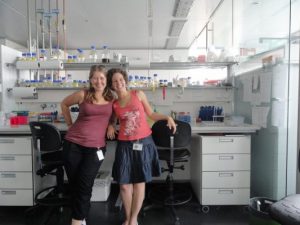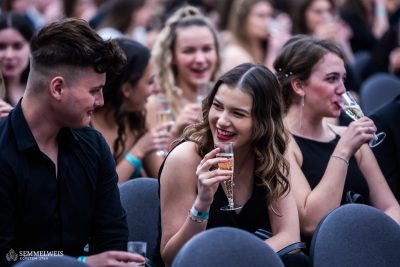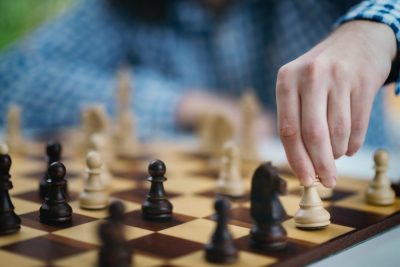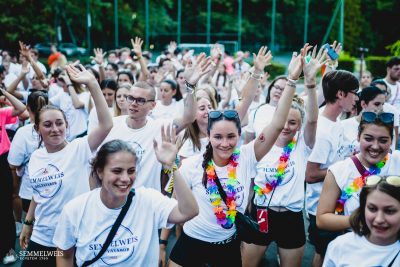Five questions – five answers: in our new series of interviews, we ask former scholarship students about their experiences, about the role of the scholarship in their careers, and above all what they advise to future scholarship students. Dr. Réka Haraszti was in Heidelberg before her sixth year, between 2011 and 2012, with the Jellinek Harry Scholarship.
 Name: Dr. Réka Haraszti
Name: Dr. Réka Haraszti
Faculty: Faculty of Medicine
Scholarship name and date: Jellinek Harry Scholarship (10 months), 2011-2012
Receiving institution: Institute of Biochemistry, Heidelberg University (Biochemistry Center Heidelberg), Germany
Current workplace: University Hospital of Tübingen, Department of Internal Medicine II (Haematology-Oncology)
Why did you choose this institution? What were you working on during the programme?
Heidelberg and Freiburg are both distinguished scientific centres. I found research in Heidelberg that was related to my Students’ Scientific Association topic. At the Biochemistry Center in Heidelberg, I was researching the mechanism of circadian rhythm of mammalian cells in Prof. Michael Brunner’s laboratory. I was trying to find out how it is possible that 20 percent of proteins are rhythmic, while among mRNAs only 10 percent. In other words, how a non-rhythmic mRNA becomes rhythmic protein. Several posttranslational regulatory mechanisms play a role here. Of these, I was dealing with cytoplasmic polyadenylation. I also learned the methodology of biochemistry and molecular biology.
What was the most defining experience during the scholarship?
The importance of time management and that I always had to have some food, snacks, instant soup, or the like in the lab. Other major experiences include the tulip fields in the Netherlands and Easter in Paris (only 3 hours by train).
How did the scholarship period help you in your life and career?
I learned to move confidently in a lab, to plan projects, discuss, argue, ask questions, ask for help if needed. I also learned the critical attitude. These skills helped me a lot in the first year of my PhD studies, which I started in the United States, at the University of Massachusetts Medical School after completing my sixth year. The fact that I participated in the scholarship program must have been an advantage at the PhD entrance exam. Finally, I wrote and defended the German “Doktorarbeit” based on this work. This is actually a repetition of the Hungarian medical thesis, but it is much more recognized in Germany, so it helped a lot in finding a job in Germany and is likely to be useful later, when applying for scientific scholarships.
What advice would you give to outgoing Semmelweis students?
Do not be afraid to ask questions. Go and have a drink with your colleagues. If communication does not go smoothly, bake a cake together, Germans really like it. Find activities outside the lab, e.g. sports, choir, etc. The university organizes trips for foreign students throughout Germany, make use of it, because it is a great opportunity to make new friends.
What do you think those who go to Heidelberg with a scholarship should not miss?
Philosophenweg. Studentenkuss. Excursion to the Königstuhl. Summer fireworks. Grilling at Neckarwiesen. Cycling to Ladenburg. Christmas fair. Big barrel in the castle. Parrots and rabbits on the university campus.
Source: Directorate of International Relations
Translation: Diána Módos


